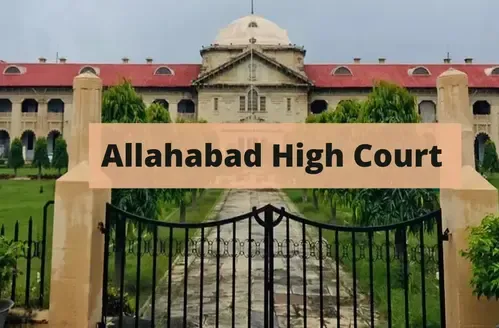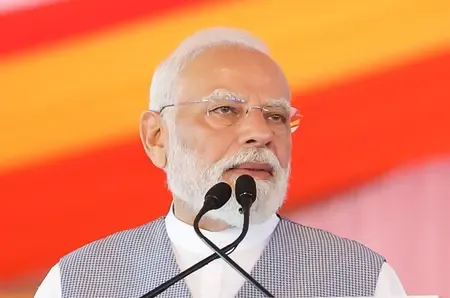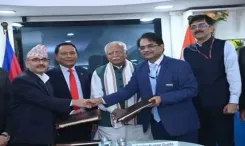Is Supporting Pakistan a Criminal Offence? Allahabad HC Weighs In

Synopsis
Key Takeaways
- Allahabad High Court's ruling highlights freedom of speech.
- Supporting a country without context is not a crime.
- Section 152 BNS requires specific intent to endanger national integrity.
- Young individuals should not face undue penal consequences for expression.
- Judicial decisions must balance freedom and national security.
New Delhi, July 11 (NationPress) The Allahabad High Court has determined that simply expressing support for Pakistan, without referencing any specific incident or mentioning India, will not prima facie constitute a penal offence under the Bharatiya Nyaya Sanhita (BNS).
A Bench led by Justice Arun Kumar Singh Deshwal was addressing a bail application submitted by an 18-year-old named Riyaz, who faced charges under Section 152 (actions jeopardizing the sovereignty, unity, and integrity of India) of the BNS for posting an Instagram story that stated, "Chahe jo ho jai sport to bas...Pakistan ka karenge (Whatever happens, we will support only... Pakistan)".
In its ruling, the court noted that the Instagram post did not display any content that could be interpreted as disrespectful towards India. Justice Deshwal remarked, "Simply showing support for Pakistan without any reference to a particular incident or mentioning India will not prima facie constitute an offence under Section 152 BNS."
"To invoke the provisions of Section 152 BNS, there must be a clear intention conveyed through spoken or written words, signs, or electronic communication to incite secession, armed rebellion, or any subversive activities that endanger the sovereignty, unity, and integrity of India. While posting a message to show support for a nation may provoke anger or discord among Indian citizens and could potentially be punishable under Section 196 BNS (with a penalty of up to seven years), it certainly does not meet the criteria for Section 152 BNS," the court added.
The Allahabad High Court referenced the Supreme Court's judgement in the Imran Pratapgadhi case, emphasizing that before proceeding with a case regarding a social media post, it should be evaluated from a reasonable person's perspective. Decisions should be made based on the standards of rational, strong-minded individuals, rather than those with weak or fluctuating opinions.
The court indicated that before applying Section 152 BNS, reasonable caution and the standards of a reasonable person should be upheld, given that spoken words or social media posts fall under the liberty of freedom of speech and expression. This liberty should not be narrowly interpreted unless it poses a direct threat to the nation's sovereignty and integrity or incites separatism.
According to the applicant's counsel, the post did not undermine India's dignity or sovereignty, and merely supporting another country—even one considered an adversary—would not satisfy the criteria for Section 152 BNS.
Furthermore, the counsel argued that since a charge sheet had already been filed by the police, there was no necessity for custodial interrogation of the applicant. If granted bail, the applicant would not misuse his freedom and would cooperate with the trial process. In contrast, the prosecution contended that the applicant's social media post encouraged separatist sentiments, asserting that he should not be granted bail.
Taking into account the applicant's youth and the fact that a charge sheet had already been filed, without commenting on the case's merits, Justice Deshwal ordered the accused to be released on bail, contingent upon the submission of a personal bond and two sureties, as required by the trial court.
The court instructed Riyaz to avoid influencing witnesses and to sincerely participate in the trial without seeking adjournments. It warned the applicant against engaging in any further criminal activities following his release on bail.
"The applicant must refrain from posting any content on social media that could incite discord among Indian citizens. Any violation of these conditions may result in the cancellation of bail," the Allahabad High Court clarified.









